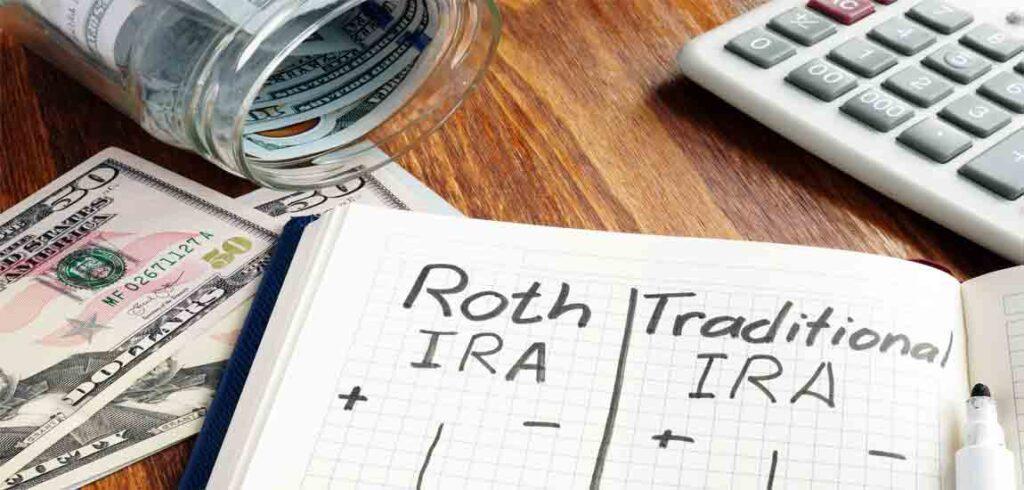


Are you thinking about your retirement? Of course! But it has a long way to go. Dear friend, you need to act and plan it now. The important thought in this regard to consider is that, will you be able to generate the same amount of money when you reach 60ies or less? Maybe, or may not be sure? Then let’s plan it, in the most tax-efficient way. Your goal would be to pay lower income taxes on your income in a long run at the same time secure your future.
Individual Retirement tax saving plan
A retirement tax saving plan allows you to save income tax to the extent of the amount you contribute to your retirement saving plan in the year you contribute to the plan. In other words, your gross income for the tax year is reduced by the amount you have contributed to your retirement saving plan.
Although it is called a tax-saving plan in the year, you contribute, but in reality, it is a tax deferral plan, unless it is a Roth IRA. When you withdraw money, maybe later years or after you retire, the amount you withdraw will be added to your income. You have to pay tax at that time of withdrawal. This tax deferral helps you pay a minimum tax on your income over the long run. Assuming you are in a high tax bracket right now and when you get older or reach your retirement age, you will be in a lower tax bracket. Please refer to tax brackets on the “Latest News” page on our website for more information.

Of course, one of the significant benefits is the tax deferral and minimizing your overall income tax in the long run. However, there are other benefits as well. You can use this savings as a first-time homebuyer. It promotes your saving habits. This saving also works as your security deposit for any unforeseen financial stress you may come across in your future.
There are limits to how much you can contribute to your retirement tax saving plans in a year. In this blog, we are going to discuss more on the retirement tax saving plans in the United States. In Canada, this plan is called the “RRSP” Registered retirement saving plan, and in the United States, it is called the “IRA” individual retirement plan. Please visit our blog “RRSP Tax Planning” for more details on the Canadian registered retirement savings plan.
Individual Retirement Account (IRA) in the United States
IRA is the same as we discussed above “retirement tax saving plan” in the United States. There are basically two types of IRS.

Traditional IRA
A Traditional IRA is called a Tax-deferred retirement savings account. Under this plan, you invest your pre-tax money in IRA. The amount you contribute to IRA reduces your income for that year, and you pay lower income tax on a lower income.
Roth IRA
A Roth IRA is called a Tax-free retirement savings account. Under this plan, you invest your after-tax money in IRA.
Tradition Vs. Roth IRA
The benefit of a 401k plan
Under the traditional plan, the amounts contributed by you are not taxable. For example, your employer has agreed to pay you gross wages of 100k/year. Assuming you want to contribute $6k/year to your IRA plan. On your tax return for the year, you will only pay income tax on your wages of $94k i.e. $100k minus your contribution of $6k. You saved an income tax of $6k. You did not pay income tax on $6k that went to your retirement investment. Now, you will invest your $6k retirement to the stocks/financial market, and the income or gains on this investment will also not be taxable.
Your principal investments and any income or gains on this investment will only be taxable in the year you withdraw and you have to pay income tax at that time.
So the real tax savings is from the tax deferral. Assuming that today you are paying 30% tax on your income. You are above the base level tax bracket. When you retire your tax bracket might be 15% and hence you will save 15%(30% – 15%) income tax on your $6k investment plus on any income or gain. Please visit our “Latest News” for tax brackets.
Contribution limit
Under both the above plans, up to the age of 50, you can contribute to your IRA $6,000 every year if you are older than 50. Your limit to contribute increases to $7,000 every year.
Penalty for withdrawal
Under both the above plans, if you withdraw before the age of 59.5 years, a penalty will apply.
While discussing your retirement savings and tax deferral options you must have come across another term called “401(k) plans. Please visit our other blog “401k” for more information about this plan.
Notes to Canadian Resident with US income and 401(k) Contribution
Subject to certain conditions, your contribution to 401(k) is deductible from your income in the United States and in Canada when you report your US income on your Canadian Tax return in the year in which you have contributed. However, the extent of the 401(k) deductions you claim on your Canadian tax return will reduce your RRSP contribution limit accordingly. Different rules apply to your IRA contribution and are not deductible on your Canadian tax return.
RKB Accounting has expertise in cross-border taxation and has been providing accounting and taxation services for the last fifteen years in Canada and USA. RKB services include incorporating a business on both sides of the border, bookkeeping, sales tax, payroll, and corporate and personal income tax. RKB’s expertise includes cross-border tax planning, long-term tax planning, helping business start-ups, business structure planning, and resolving complex tax matters. RKB a CPA(Delaware), CA(India), and CIA(USA) has over 25 years of experience in accounting and taxation in dealing with various countries in the world.
Disclaimer: Information in the blog/post/article has been presented for a broad and simple understanding. This is not legal advice. RKB Accounting & Tax Services does not accept any liability for its application in any real situations. You need to contact your accountant or us for further information.